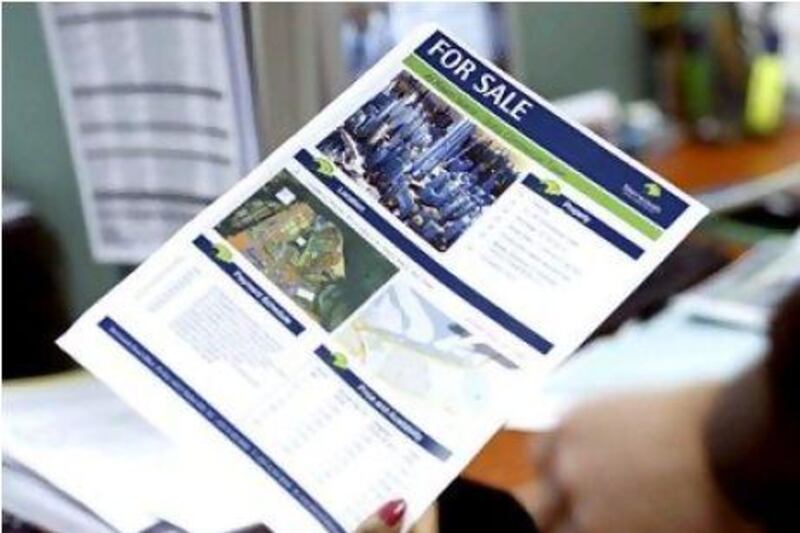Competition is hotting up between mortgage lenders tempting would-be homeowners with bargain basement interest rates.
HSBC Middle East and United Arab Bank have lowered interest rates on mortgages in the past month. However, as the lenders compete for new business, it is unclear whether reluctant buyers will take the bait.
New mortgage lending has fallen so far this year. The UAE's banks issued Dh159.78 billion (US$43.5bn) of mortgage loans as of March, according to the most recent Central Bank data.
Lending for a single month reached Dh164.2bn last November, but it has been falling steadily since then.
Underlying asset prices are still a long way from recovery, according to a research note from Chet Riley, a property analyst at Nomura in Dubai.
"Real estate capital remains sticky and we think the sector is part-way through a prolonged period of asset stagflation rather than asset reflation," he said. "We think the direct market … is slowly forming a base, but commercial pressures continue."
But despite those concerns, the cost of financing for buyers is improving - at least in theory.
United Arab Bank last week dropped its mortgage rates to 4.99 per cent for the first year, after which it reverts to an internally set rate that changes every six months, with a minimum rate of 6 per cent.
The mortgages are aimed at customers who are likely to remain in the country for many years and not leave for economic reasons.
HSBC Middle East has cut rates for 25-year mortgages to 5.49 per cent while also slashing loan-to-value ratios.
Liquidity in the banking system improved dramatically last month, causing the Emirates interbank offered rate (Eibor), the rate at which banks borrow money from each other, to fall sharply.
Six-month Eibor has fallen 22 per cent since April.
For customers with floating-rate mortgages based on Eibor, that should result in lower interest payments.
But not all banks use Eibor as a benchmark for mortgage lending, and many have switched in recent years to internally set base rates that are often higher than Eibor.
"Although Eibor rates have come down, I don't think the impact has resulted in any new mortgage origination," said Shabbir Malik, a financial analyst at EFG-Hermes.
"Most investors that are buying properties are cash buyers," he said. "[Banks] are trying to convert some cash buyers into mortgaged properties."
ghunter@thenational.ae






